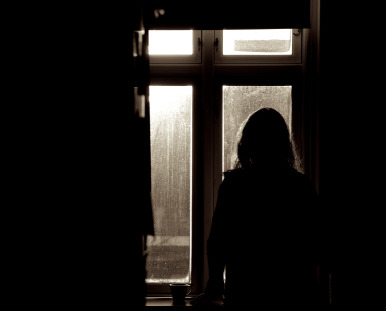We have a serious problem in the church today.
We lie to each other.
We lie every time that we feel deeply broken and in pain, and yet we say we’re fine.
We lie every time we skip church because we don’t want to face the question, “How are you?”
We lie every time someone opens up about a struggle and, because of pride and fear, we pat them on the back, saying, “I’ll pray for you, friend!” rather than sharing how we’ve faced a similar struggle.
We lie to each other.
In Russell Willingham’s amazing book, Relational Masks, he addresses the core beliefs that make us feel as if we must put on our smiles and act as if everything is OK.
One major core belief is this: If I am honest, I will be abandoned.
Shame runs deep. It began in the Garden of Eden, when Adam and Eve tried to cover up the truth for their all-knowing Creator. If Adam and Eve struggled with honesty in their relationship with God, how much more so do we need to fight against this tendency in our lives.
Russell Willingham stated this in a teaching I once heard: we demonstrate the above core belief by always putting our best foot forward and never letting anyone see our weaknesses. We have this secret fear that if we’re honest about how deep the brokenness goes, we’ll be thrown out on our ears.
A lot of these core beliefs are based on experiences we’ve actually lived through. Some of our families would shut down our honesty. We’ve shared our struggles and experienced rejection. Thus, we don’t risk with people. We’re always respectable. We act like we have it all together.
Paul address in the church in Ephesus. “Therefore each of you must put off falsehood and speak truthfully to his neighbor, for we are all members of one body” (Ephesians 4:25). You can read the context of the passage here. Paul was giving the believers instructions on new ways of living and interacting.
Paul was basically telling Christians to stop lying to each other.
Because that’s our tendency. Our tendency, since the Garden, is to hide. Hide our sin, hide our brokenness, hide our shame. Act as if we’ve got it all together and we don’t need help.
Russell Willingham states that we need a commitment to truth-telling in our lives.
What have you gained, spiritually, by being dishonest?
With God?
With your friends?
With those around you who can help you?
Why do we put on our smiling faces and go to church when we are totally broken inside? Or worse yet, skip church all together during those tough weeks?
I know from my own life and years of ministry, we have a desperate need to be seen. That is the imprint of God within our hearts. He did not create us for isolation. He created us for love, acceptance and support in the safety of authentic, healthy community. He deposited in us a need for affirmation, for honesty, for the freedom that is found when we bring our struggles to the light.
Here’s the thing: not everyone can handle honesty. And not everyone has earned a place of trust in our lives that we should tell them our struggles. Remember Jesus’ example of 3 intimate friends and 9 other good friends. So you may have to go to a number of people before you find a safe place to share your heart. But it’s worth the risk. You were created for relationship. God designed freedom, healing and growth to happen in the context of community.


